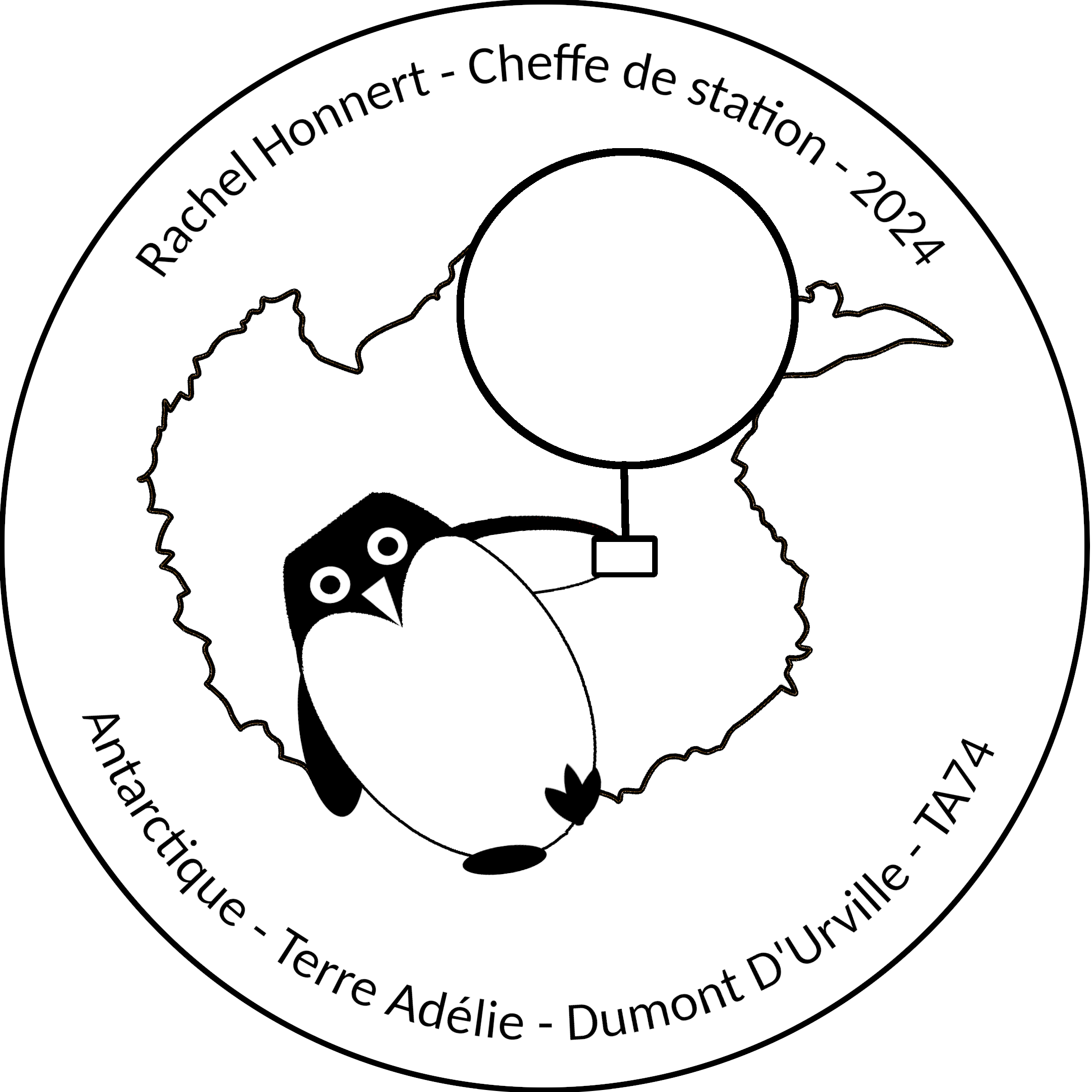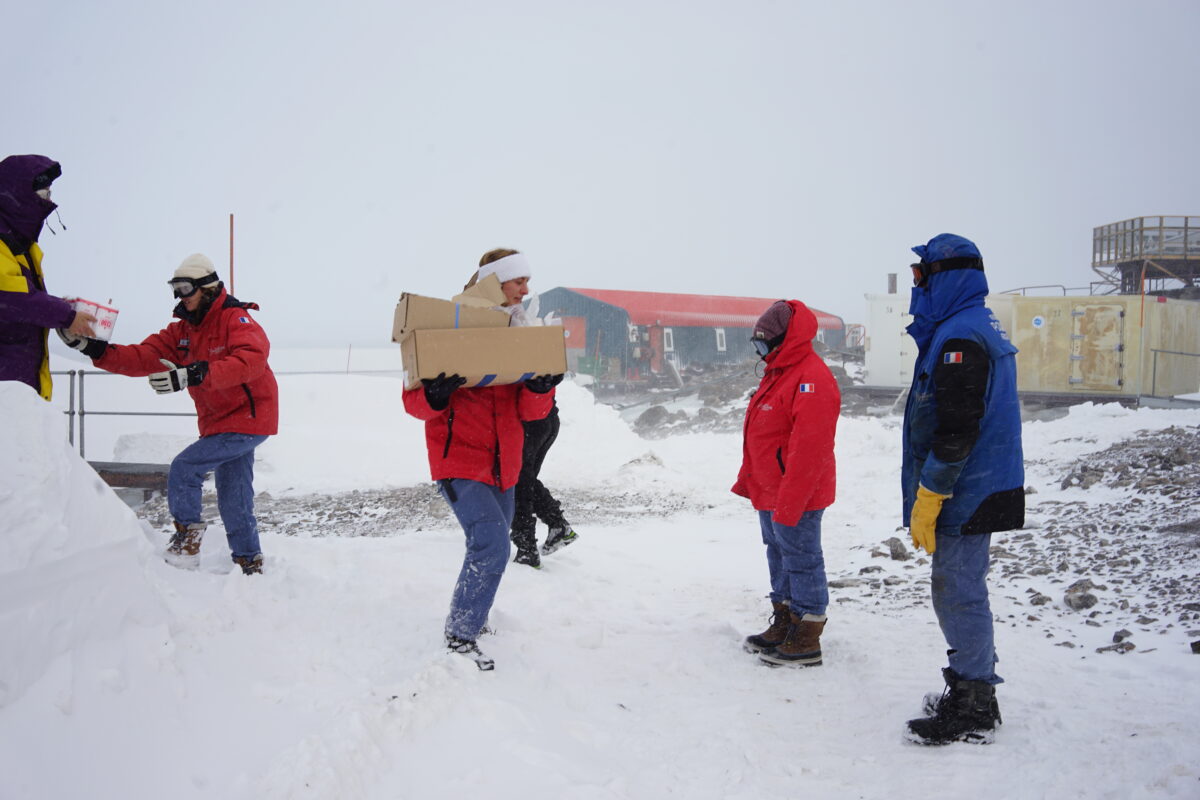All the same
On the base, we share the same experiences. The climate comes to mind, of course. But let’s talk about other things.
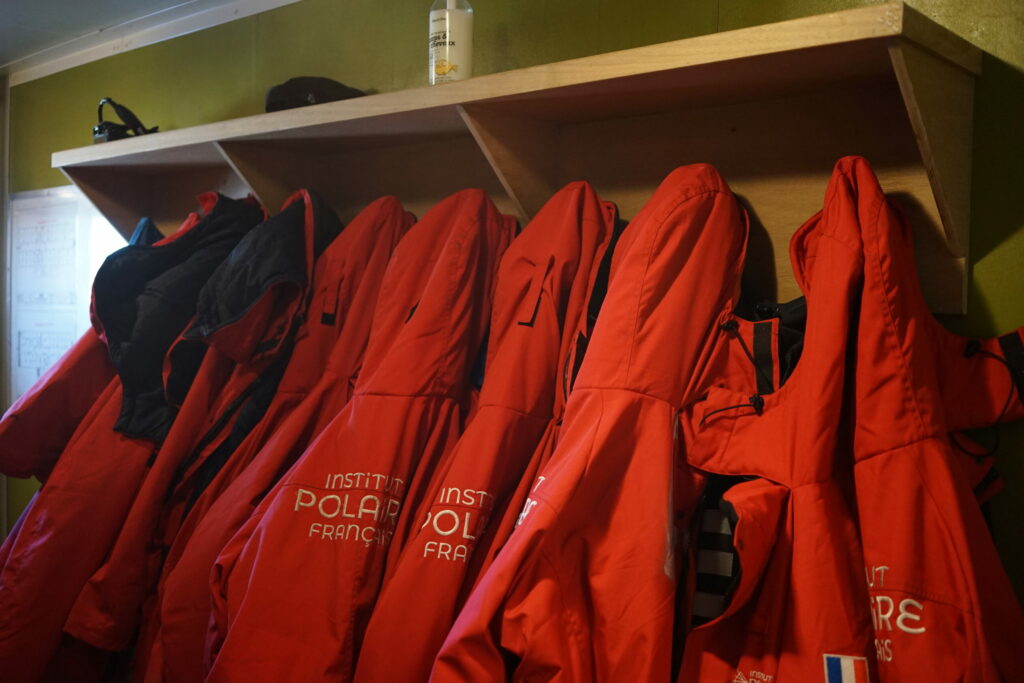
First of all, we all look alike because we share the same equipment. The endowment is the equipment provided by the IPEV for the year. Our equipment is our own. It’s specific to each job, and the clothes are our size (more or less) but on the whole we share the same items. So we have trouble finding our own clothes. This gives us the opportunity to complain together about the shortcomings of our equipment: it’s dull and ill-fitting for the women, the gloves don’t protect us from the cold, they don’t fit properly, etc.
We also share certain tasks, which are done by everyone. This is the case with “service base” (basic service). Service base is a day given to the community. It’s done in pairs. You don’t choose your partner or the day, and it’s mandatory. You clean part of the communal areas, the showers and toilets. We empty the bins. We set the table, serve the food and wash the dishes. It’s a lot easier to do the service base in winter when there are 24 people than in summer when there are 80. It’s a little humiliating. So it’s very important that everyone goes through it.
Having the same experiences makes it easier to understand.
Yet all specific
At Dumont D’Urville (DDU), there’s one plumber, one electrician, one carpenter, etc… We’re not free to choose the people we work with. I think that when you need someone, you’re more polite to them. And we’re all interdependent. So we’re all polite to each other.
In any case, people are competent in their field because they are selected to be so. And they’re helpful, so maybe we’re selected to be too. I don’t know if it’s the same every year, but this year the group is quite friendly.
Helping others
However competence is not always enough. It often takes more than one person to get the job done, or simply because it’s less of a hassle.
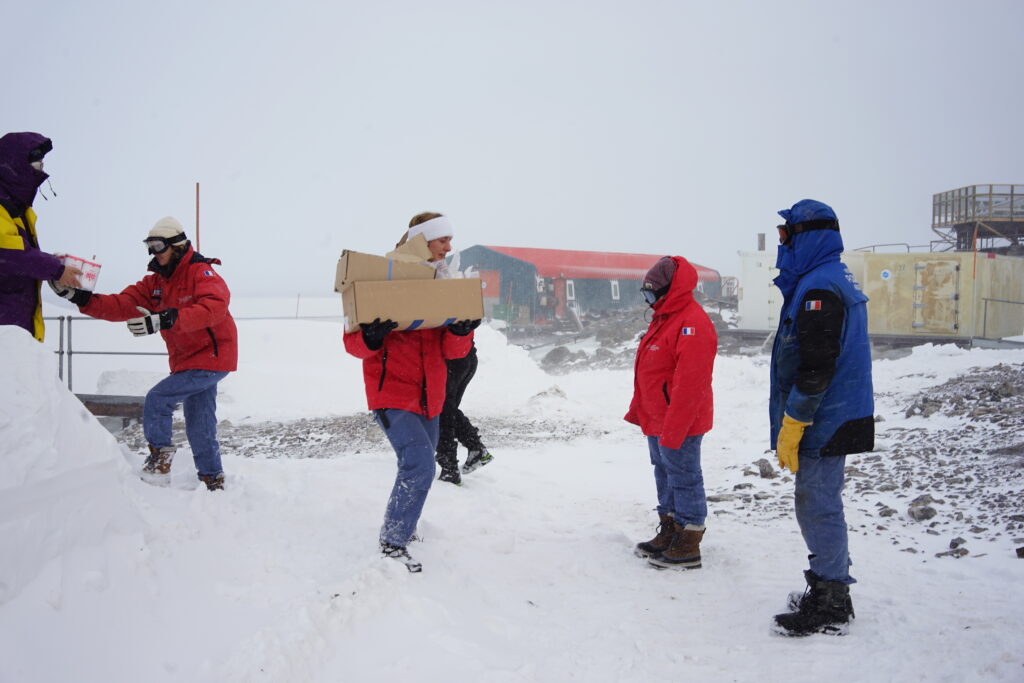
At DDU, the buildings are all far apart. This is particularly true of the food storage sheds and the kitchens. As a result, once a week, foodstuffs are transported in a chain from two different sheds (the -20°C and the +4°C) to the kitchen. This is called manip’vivre. Anyone who wants to can take part in the chain, otherwise the cook and baker would have to carry the food themselves: impossible.
What’s more, the kitchen is always happy to get a hand. From peeling onions to making a snack, or even cooking a whole meal. The kitchen is open. It’s good for me, who loves to cook, and for them, who work a bit less.
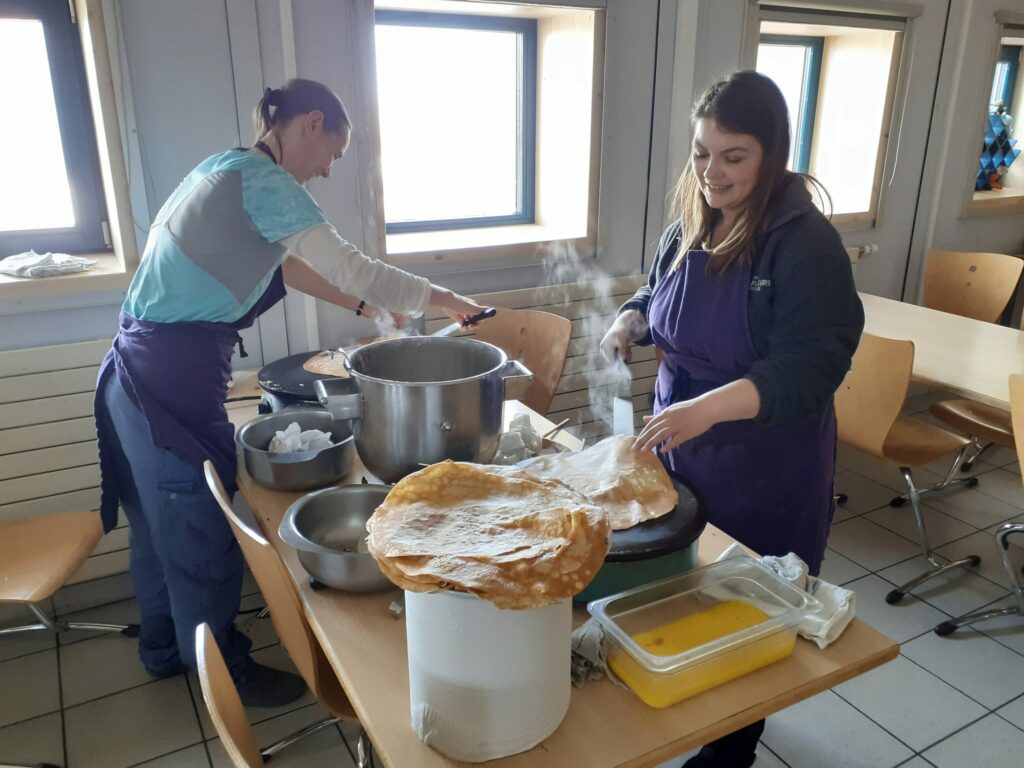
It’s the same with birdwatchers. They need people to help them and this allows us to see wild animals up close. It’s a chance to go for a walk. But sometimes the question changes direction. The people who come to Antarctica don’t come by chance. They love their job. It’s their passion. But the sheer volume of work is too much. This is where we reach the limit of mutual aid. We don’t want our colleagues and friends to find themselves in difficulty in their work. One person’s failure affects the whole group. So everyone pitches in. But shouldn’t this work, that we do on a voluntary basis, be made by professionals ?
Assistance and training
Sophie, the doctor, won’t be able to save someone who has an accident at DDU on her own. For an hour a week, she trains us and puts together a small medical team and a small first aid team, of which I am one.
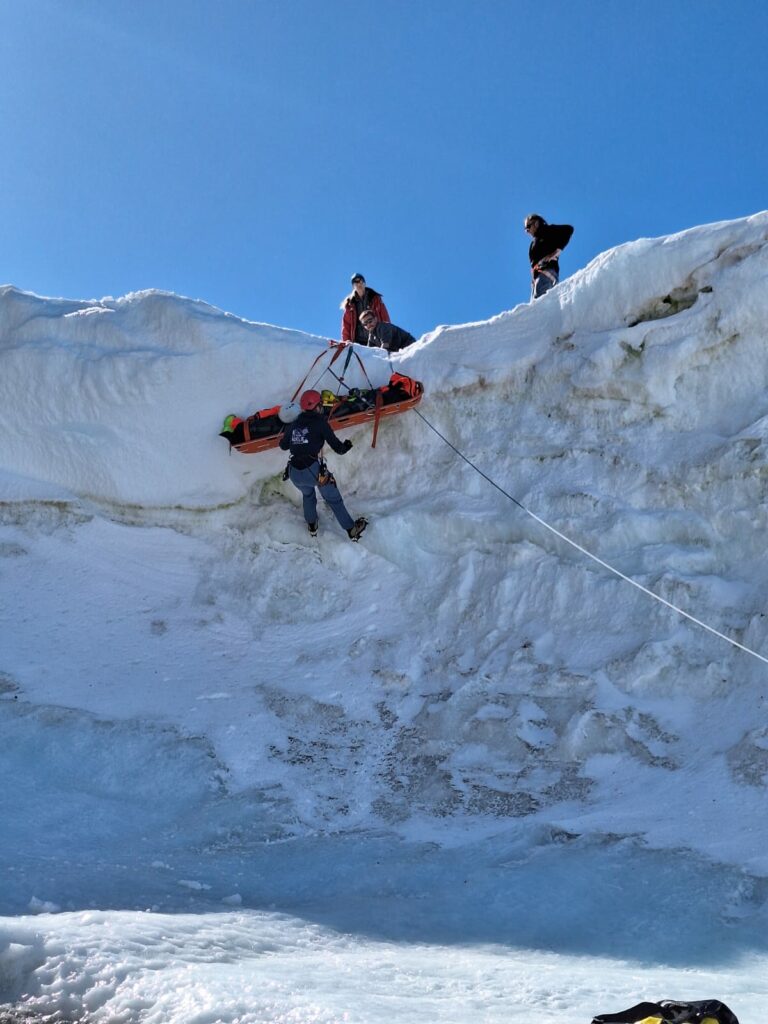
And it’s not the only one training people. There is of course an interest in the work of the professionals around us. So some people train in mechanical engineering, for example. Everyone invites everyone to come and see their work. What’s more, we, weather forecasters, invite others to launch our weather balloons (just for fun) and I’ve started weather forecast trainings (for those interested).
Community life
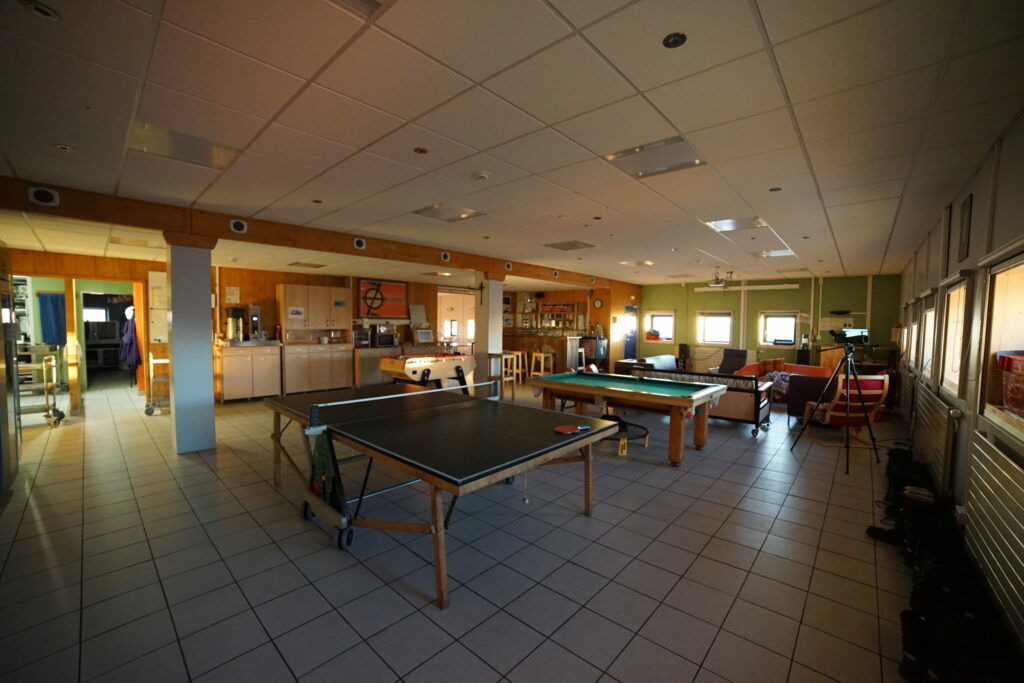
Leisure activities are also often collective. With the onset of winter, the living room has been transformed and games (billiards, table tennis, table soccer) have invaded the space. We watch TV series together. We play board games.
Finally, what would French community life be without a bar: the ‘White Hell’ is now open every day. You have to pay for the alcohol, which is subject to quotas (which are apparently too strict). There are endless discussions about how best to manage the alcohol. But I’m not concerned: I have to be the only one who doesn’t drink alcohol.
